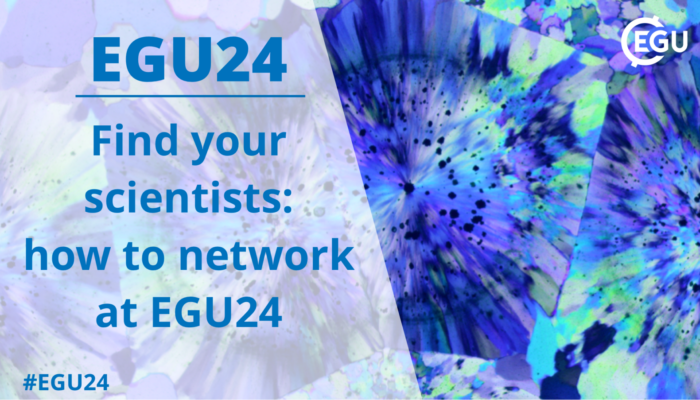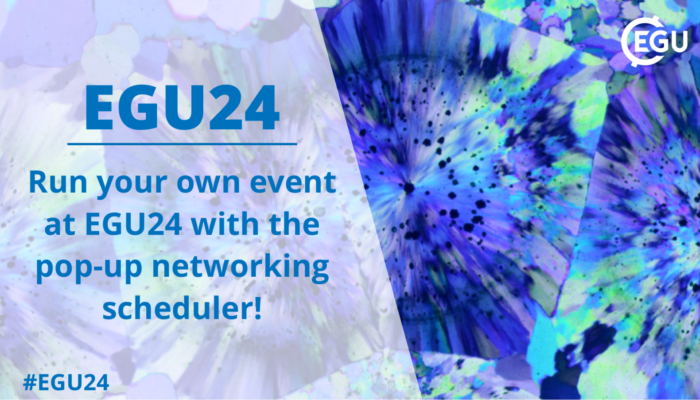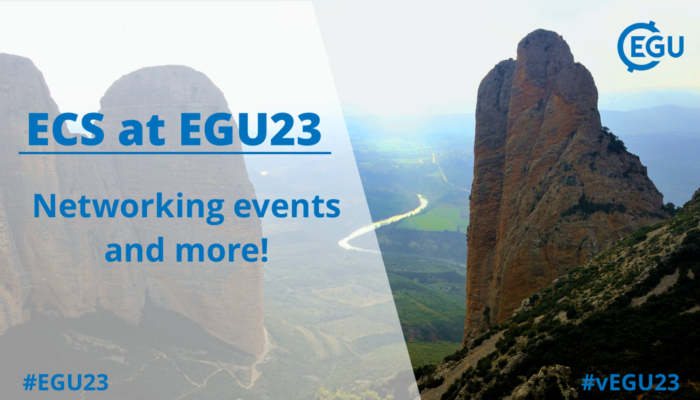The General Assembly is the nucleus around which EGU’s community gathers and connects, providing a week of opportunity to meet new people and reaffirm old bonds. Progress within science and its impact on society rises from the confluence of ideas and a diversity of voices; to facilitate meeting and discussion at the Assembly, #EGU24 offers a number of paths for building your network. Network ...[Read More]
GeoTalk: Jane Roussak, EGU’s Events Manager, tells us how to get connected at EGU24!
The EGU General Assembly 2024 (EGU24) will be held 14-19 April 2024, in Vienna, Austria and online. To learn more about discovering your research network at EGU24 and the inner workings of organising such an event, I sat down with Jane Roussak to ask her some questions. Hello Jane. Thank you for joining GeoTalk! Could you introduce yourself to our readers? Thank you for having me! I’m Jane Roussak ...[Read More]
Run your own event at EGU24 with the pop-up networking scheduler!
Pop-up networking returns for the #EGU24 General Assembly! Attendees can add their own events to the conference programme using the pop-up scheduling tool. Events can be virtual or in-person, and include a number of tagging options to communicate the event theme to other attendees. The pop-up networking scheduling tool is live right now! Anyone attending EGU24 can organise an event using the sched ...[Read More]
ECS at EGU23: networking events and more!
The EGU23 General Assembly have a plethora of events built for – and by – Early Career Scientists (ECS), from how to navigate Europe’s largest geoscience conference to developing your network and exploring your career choices. Below are some of the big things to look out for: First-time attendee Networking (on-site only) Tue, 25 Apr, 12:45–13:45 (CET) Room 3.29/30 If this is your fir ...[Read More]




